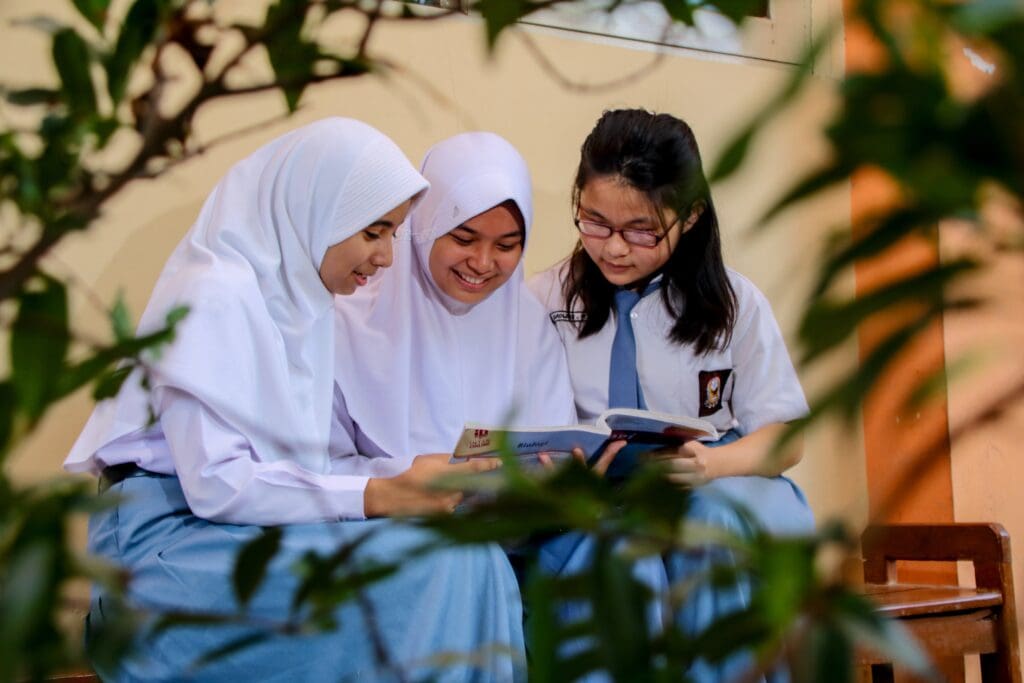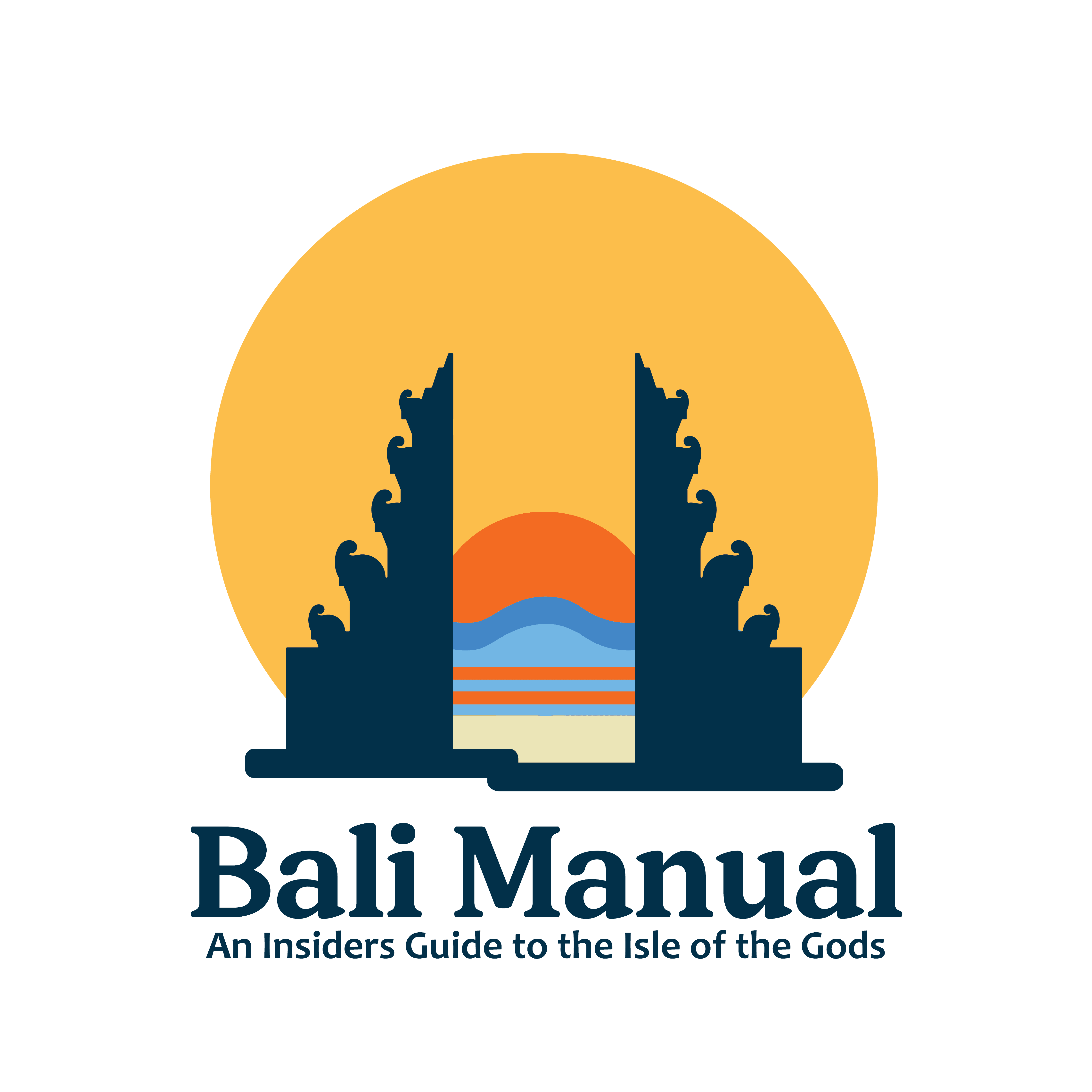Check out this guide on how to text like a local with Indonesian. It might even trick people into thinking that you’re a local, that’s if your name doesn’t give it away first!!!
Bahasa Indonesia is said to be one of the easiest languages in the world to learn. In contrast to the 171,000+ word vocabulary of English, the Indonesian language has around 50,000 less words. This may contribute to a perceived ‘easiness,’ but many would say it’s hard to translate word-for-word what we are trying to say in our native tongue. I agree. The language is not as expressive nor as specific as English. It’s beautiful in its own way. Sometimes simpler is better, right?

Even with the smaller dictionary, there are still some nuances of the language that are difficult for some to grasp even after many years of living here. People will often times a take a couple of private Indonesian lessons only to find that the bahasa Indonesia (simply referred to as ‘bahasa’ by many) that they hear on the street is entirely different from what was taught at their lesson.
Formal Bahasa Indonesia and the bahasa we use in our normal daily activities are vastly different. Sure I can get by in any traditional market, but talking to a government official in their office, for example, is a completely different story. It is TOUGH. I recall asking a local friend for help crafting a formal email to a large corporation, even this intelligent college-educated individual struggled to use proper conjugations and grammar!
For most, learning a conversational level of bahasa is a much better use of time and effort. It can be applied in your daily life and it really goes a long way if you consider how quickly you can get to this level with some good ‘ole fashioned studying- just a little bit each day, but every day.

So if you’re already chatting on WhatsApp with your tukang, kurir, pembantu, Grab driver…well done. You may have already noticed that Indonesians tend to text as if they are being charged per the letter – leaving out virtually all vowels and as many characters as possible. The result is something that is hard to read for those who are still learning. You can’t use Google Translate because they aren’t actually words, bummer!
Don’t worry because I’ve got you covered, the following is a list of the most common shorthand texts, taken directly from my hundreds of WhatsApp chats….Once you know most of these give yourself a pat on the back because you’ve done well. Eventually you should find yourself effortless figuring out what most of the abbreviated words actually mean!
A
ad- ada – there are, there are
ak, aq, q – aku – me
aj – aja, saja – just, only
B
bs – bisa – can
bpk – bapak – sir, father
blm, lom – belum – not yet
bnyk – banyak – a lot, lots, many
brngkt – berangkat – leave
brp, brpa – berapa – how much, how many
bru – baru – new, just now
bgtu – begitu – like that
bwt – buat – for, make
C
cm, cmn – Cuma, cuman – only
cb, cba – coba – try
cpt – cepat – fast, quickly
D
dmn – dimana – where
dpt – dapat – get
dll – dan lain-lain – and others, etc.
dr – dari – from
dgn – dengan – with
dkt – dekat – near, close
dlu, dl – dulu – first, before
dtfr – di transfer – transfer, send (usually regarding local bank transfer)
E
emg – emang – indeed
F
G
ga – nggak, tidak – no
gmna, gmn – gimana (bagaimana) – how, what if
gtu – gitu – like that
H
hr – hari – day
hub – hubungi – to contact
hp – handphone – cell phone
I
J
jgn – jangan – don’t
jg – juga – also
jd, jdnya – jadi, jadinya – so, happen, so it means
jm – jam – hour
K
kbr – kabar – news or more frequently the news regarding yourself eg. “how are you?”
km, qm – kamu – you
Kk – kak – bro, sis, an informal way of addressing someone of similar age
ksn – kesana or kesini depdning on context – to there, to here
kmn – kemana – to where
klo, kl – kalau – if
kta, kt – kita – we
krj – kerja – work
kmrn – kemarin – yesterday, in the past
knp – kenapa – why
kpn – kapan – when
ktmu – ketemu – meet
kyk, kyknya – kayak, kayaknya – like, it seems like
ksh – kasih – give
L
liat – lihat – look, see
lbh – lebih – more
lg – lagi – again, more
M
mlm – malam – night, goodnight, good evening
msh – masih – still
mrk – mereka – they
mkn – makan – eat
N
ntr – sebenTAR but closer to “nanti” in meaning – later, in a bit
ngpn – ngapain – what are you doing?
O
org – orang – person
P
pk – pak, Bapak – mister, sir
px – pax – people
prnh – pernah – ever
plng, plg – pulang – go home
Q
q – aku – me
qt – kita – we
qm – kamu – you
R
S
sy, sya – saya – me
skrg – sekarang – now
sblm – sebelum – before
sm – sama – same, with
sgtu – segitu – that much
sampe – sampai – until
smua – semua – all
T
tar – sebentar – just a moment
tmpt – tempat – place
tp – tapi – but
tgl – tinggal or tanggal depending on context – (tinggal) stay or live (tanggal) date
td – tadi – earlier
tya – tanya – ask to
trms, tms – terima kasih – thank you, thanks
U
udah , udh, dah, da – sudah – already
utk – untuk – for
V
W
wa – WhatsApp
X
x – kali – times as in “how many times?”
Y
yg – yang – which, that

why not include the english translations of the indonesian words while you’re at it? or are you going to make us look up what segitu means after we look up the abbreviation here? not everyone speaks indo as well as you dude!
I can go back through and add in some English translations I guess. I just figured anyone SMSing in Indonesian already wouldn’t need the English translations. Wouldn’t be a bad idea to have all the translations in one place though.
i know all but 2 or 3 of those words, others might know some but not all as well…
here are some more, maybe you could add them?
qt
bwt
actually i have no frikkin idea what half of this means, maybe the context would help with the translation:
iyaaaa bli..emg udh qt siapin bwt narasumber qt…tp dtnggu dlu yakk,bli
what the heck is a narasumber?
Thanks, I’ll add those now.
A narasumber is a person, usually an expert source of information on a particular topic. A witness could also be called a narasumber. The word has a bit of a broad definition. Your sentence doesn’t give enough context clues for me to tell you exactly what way it was meant, but you should probably be able to decipher it from there knowing the situation better.
The sentence in long form Indonesian is “Iyaaa bli. Emang sudah kita siapin buat narasumber kita…tapi ditunggu dulu ya bli” or in English “Yea bro, indeed we have already prepared for our Narasumber. But we are still waiting bro/ but please be patient bro.”
Can someone translate these two paragraphs for me please?
Saya dan abdul memang pernah menikah tapi kami udah pisah . Kemarin saya bilang ke abdul kamu nghubungin saya , tapi katta abdul ga usah ladenin kamu . Abdul ga serius ke kamu.
Sirna sudah kraguan , semua sudah dlm plukan dan truslh brkan aku cinta .. Stuknlh semua rasa 2 insan 1 raga , dan nkmtlah khngtan cinta dan brjnjilah bukan tidak sementara . Cintailah aku .. Truslh titip bgtu ,buang ragu miliki aku seutuhnya untuk kamu..
Sorry…paragraphs were not copied properly. Here they are again…
Saya dan abdul memang pernah menikah tpi kami udah pisah . Kemarin saya bilang ke abdul kamu nghubungin saya , tapi katta abdul ga usah ladenin kamu . abdul ga serius ke kamu
Sirna sudh kraguan , smua sdh dlm plukan dan truslh brkan aku cinta .. Stuknlh smua rasa 2 insan 1 raga , dan nkmtlah khngtan cinta dan brjnjilah bkan tk smntara . Cintailah aku .. Truslh ttp bgtu ,buang ragumu miliki aku seutuhnya untkmu .
Thank you for all your help.
What does an suffixed “-2” or “2” mean? Like ” teman-2″ “ngilang-2” etc?
It is used to make a word plural, so teman2 would me friends, as opposed to teman which only means friend.
What is gtu? Thanks.
What does it mean in Eastern Javanese:
1. entok 1998?
2. Peter, seng nyekel po mimi bunda’ne hayu po co?
3. Beh tenan co masak alah
4. Ngece. Kabur ae ah.dak mbok lebok ne dok ternak mu…kaburrr
5. Pipi kabur ma mimi y???? kabur ma nyamuk??
How to use “po” , “to”, “ma”, “mu”, “co”, “xxxxxx,e”? And theirs meaning?
Thank you very much!
Please help to explain below sentense for me. It is come from a speaker who live in East Java.
“Mayan enek wongeteri duwek…..”
or ” Mayan enek wongetri duwek….”
“ngece.kabur ae ah.dak mbok lebok ne dok ternak mu…..kabur”
“Pipi kabur ma mimi y??????/kabur ma nyamuk????”
Thank you!
Mas Setia